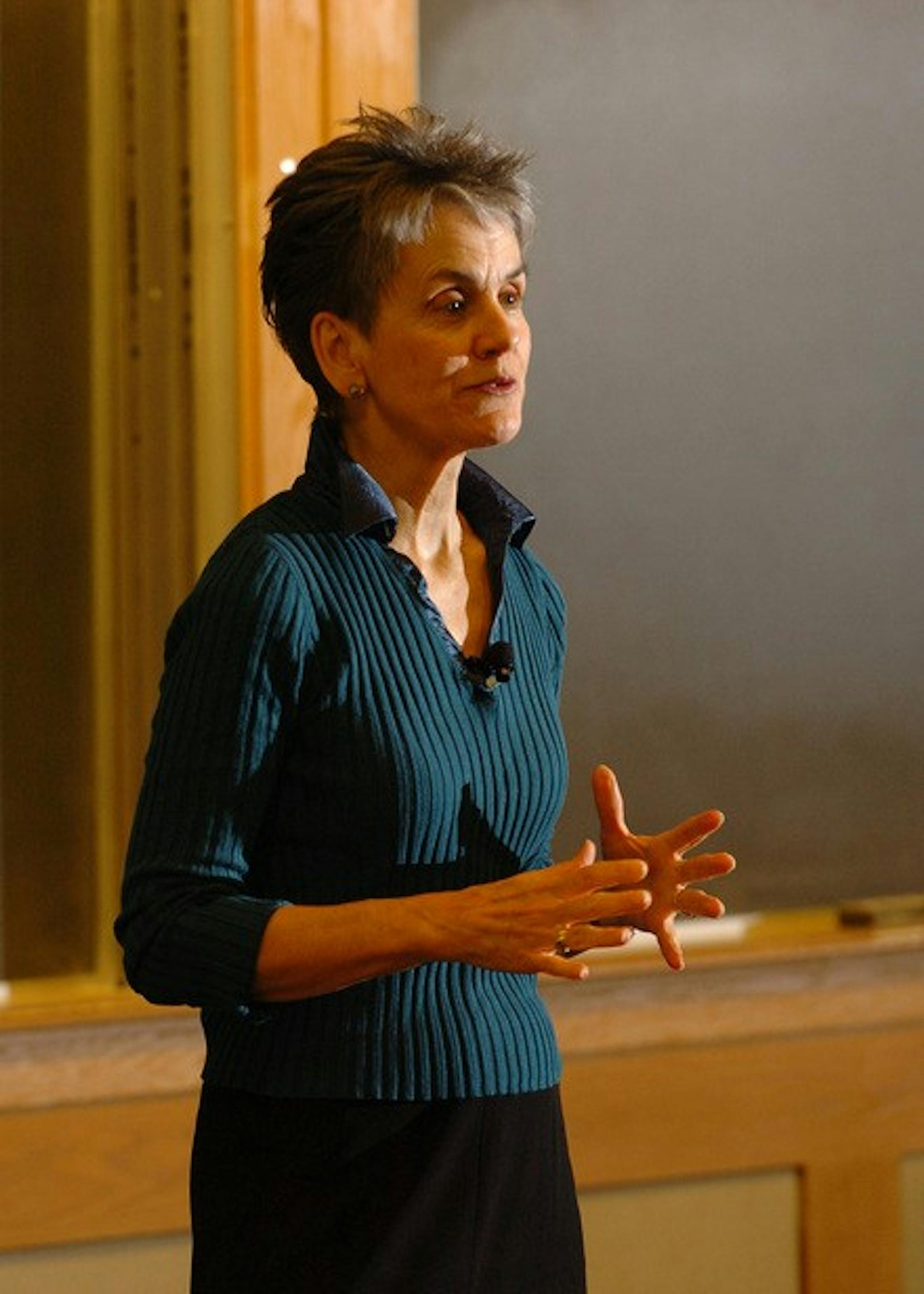The discussion, attended by approximately 30 Dartmouth students and faculty, as well as Hanover residents, focused primarily on the importance of individual initiative in resolving world hunger and obesity. It was sponsored by the Rockefeller Center and the Dartmouth Animal Welfare Group.
"Hunger is not caused by a scarcity of food, but by a scarcity of democracy," Lappe said. "We are creating scarcity. We are creating what we fear."
Lappe said that Americans have "self-centered, materialistic and competitive mentalities" due to the nation's one-rule-market, in which corporate finance dominates the marketplace.
"The free market exists only in the speeches of politicians," she said. "Ten corporations now control half of the foods in grocery stores."
Lappe said that organic and locally grown foods are a sensible solution to end hunger and obesity, in contrast to genetically modified organisms produced as food sources.
"If the entire world went organic, it would increase food production by 57 percent," she claimed.
She advocates that the global community follow a food-source model similar to that in Mali.
"Let's grow food to feed our population," Lappe said, referring to the United States' agricultural practices. "If, after that, we can export and import, then that's fine. This is the national policy in Mali. They're starting with the basics of food security."
Agro-ecology, a type of farming that incorporates "ecological knowledge and ancient wisdom," is necessary to overcome world hunger, Lappe said.
"Returns go back to relatively small producers. They are networked. A network can work splendidly without control of corporations," she said.
She discussed the United Nation's plan to end world hunger in which farmers learn in farmer field schools where they can network and learn from each other.
"This empowers them to build on the knowledge they have," Lappe said.
Additionally, Lappe discussed the relationship between corporations and the obesity epidemic in the United States.
"Our food has become the greatest threat to our health. [Corporations] add more trans fats because they're really cheap. Changes to our diets add to the bottom line of corporations and to the health problems in our nation," she said.
Lappe proposed a policy of humility in overcoming the corporate approach to food production.
"We evolved in tribes knowing that we can trust our bodies' sensations about fear," she said. "We also evolved knowing that separating from the pack pretty much confirmed death. Metaphorically, the hyper-tribe of our planet is heading over the edge. Separating from the pack, which used to mean death, now means life. We need to understand that we can choose how we interpret these changes."
Lappe, who has written 15 books, is best known for "Diet for a Small Planet," which focuses on the relationship between food and world politics. Another notable book by Lappe, "World Hunger: 12 Myths," explores policies and politics related to starvation worldwide and common American misconceptions regarding humanitarian interests.
Lappe has made numerous television appearances including "NOW with Bill Moyers" and the "Today Show." She has been featured on CBS Radio and National Public Radio's Weekend Edition, as well as "Glamour," "People Magazine" and "O Magazine."
Reflecting on her life's experience studying politics and world hunger, Lappe offered advice for the future of the earth and its inhabitants.
"We are in an era in which we know the planet is on the ropes. Children being born today are facing absolutely unprecedented challenges. There are tremendous consequences that we are going to have to deal with," she said.




